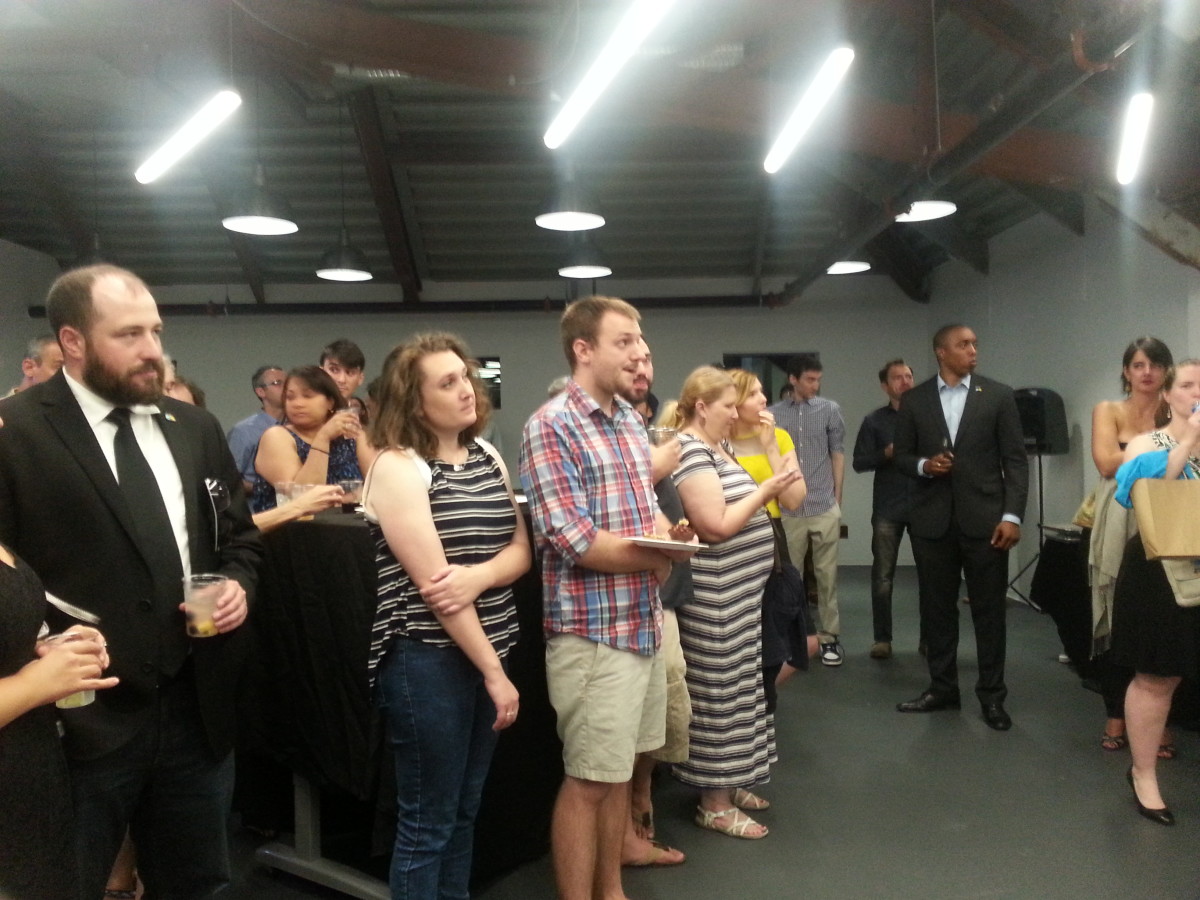A new partnership between Code in the Schools and Baltimore city government is aiming to give students a chance to work on civic tech as they learn dev skills. Officials also believe it could be a pathway to jobs.
Formally, a memorandum of understanding was signed between Code in the Schools, the Baltimore Department of General Services and the Mayor’s Office of Information Technology. It was announced at a news conference on Wednesday with Mayor Catherine Pugh, who said she wanted students “to have a leg up on a lot of opportunities that are out there.”
Under an initial program, seven students will get a course in Python and work on projects in the Department of General Services, which oversees city-owned buildings and vehicles, among other services.
DGS Director Steve Sharkey started his work with the city in CitiStat, and data has always been key. Work has already started in-house to add more to that data tracking. For instance, the department’s Babila Lima and Varghese Paranilam talked about a new mobile facility maintenance tool at Baltimore Innovation Week 2017.
“We’ve got all of this data that’s exploded, and now hopefully we can mine that data in a better way, and put it into forms that we can use,” Sharkey said.
Students will be involved in that effort. Along with getting a general overview from CITS, students will be working on data visualization dashboards and email automation, said Code in the Schools Communications Director Charlotte James.
“We really want them to have rich experiences and be a part of the team,” Sharkey said.
It’s the latest civic-facing project for five-year-old coding education nonprofit CITS, which also led a team of students developing the Bad Batch Alert system to provide texts about heroin that could be tainted with fentanyl. This connection came about in part through a connection with current DGS Baltimore Corps fellow Melanie Shimano, as well as Lima’s work in the tech community.
Under the arrangement some of the top students from CITS’ Prodigy program will work with DGS. At the end of the spring, at least one student will continue on in a summer job.
“We’re thrilled about this partnership because it will allow us to take those students that are ready to move into careers, and potentially college, and take their advanced skills to work with the city to further our civic programs and their own careers and education,” Code in the Schools Executive Director Gretchen LeGrand said.
With MOIT’s involvement, the work could also expand to other departments.
“With the mayor’s support we are going to be proactively engaged in growing our own pipeline of tech talent by engaging our city’s youth,” said MOIT Director Frank Johnson.
Join the conversation!
Find news, events, jobs and people who share your interests on Technical.ly's open community Slack

Baltimore daily roundup: Medtech made in Baltimore; Sen. Sanders visits Morgan State; Humane Ai review debate

Baltimore daily roundup: The city's new esports lab; a conference in Wilmington; GBC reports $4B of economic activity

Baltimore daily roundup: Find your next coworking space; sea turtle legislation; Dali raided and sued


